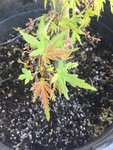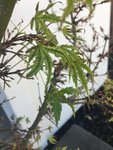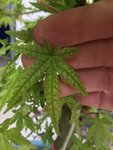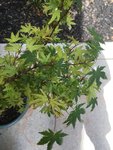sixemkay
Yamadori
I purchased this tree earlier this summer from a woman on Craigslist. She couldn't remember which type of Japanese Maple it was. What do you think it is?
Thanks in advance
Attached are pictures of: newly opened leaves; whole tree; mature leaf
Thanks in advance
Attached are pictures of: newly opened leaves; whole tree; mature leaf





